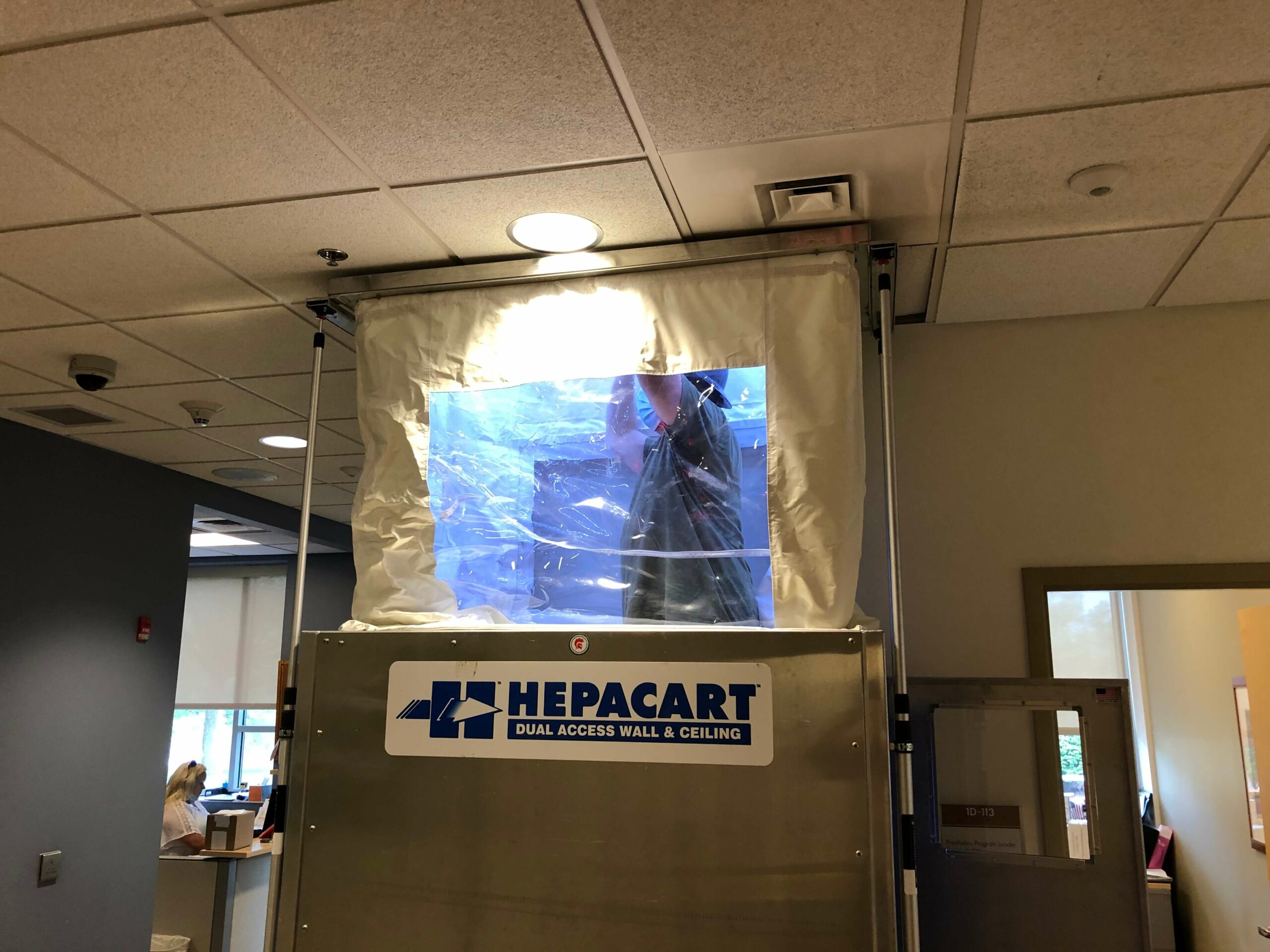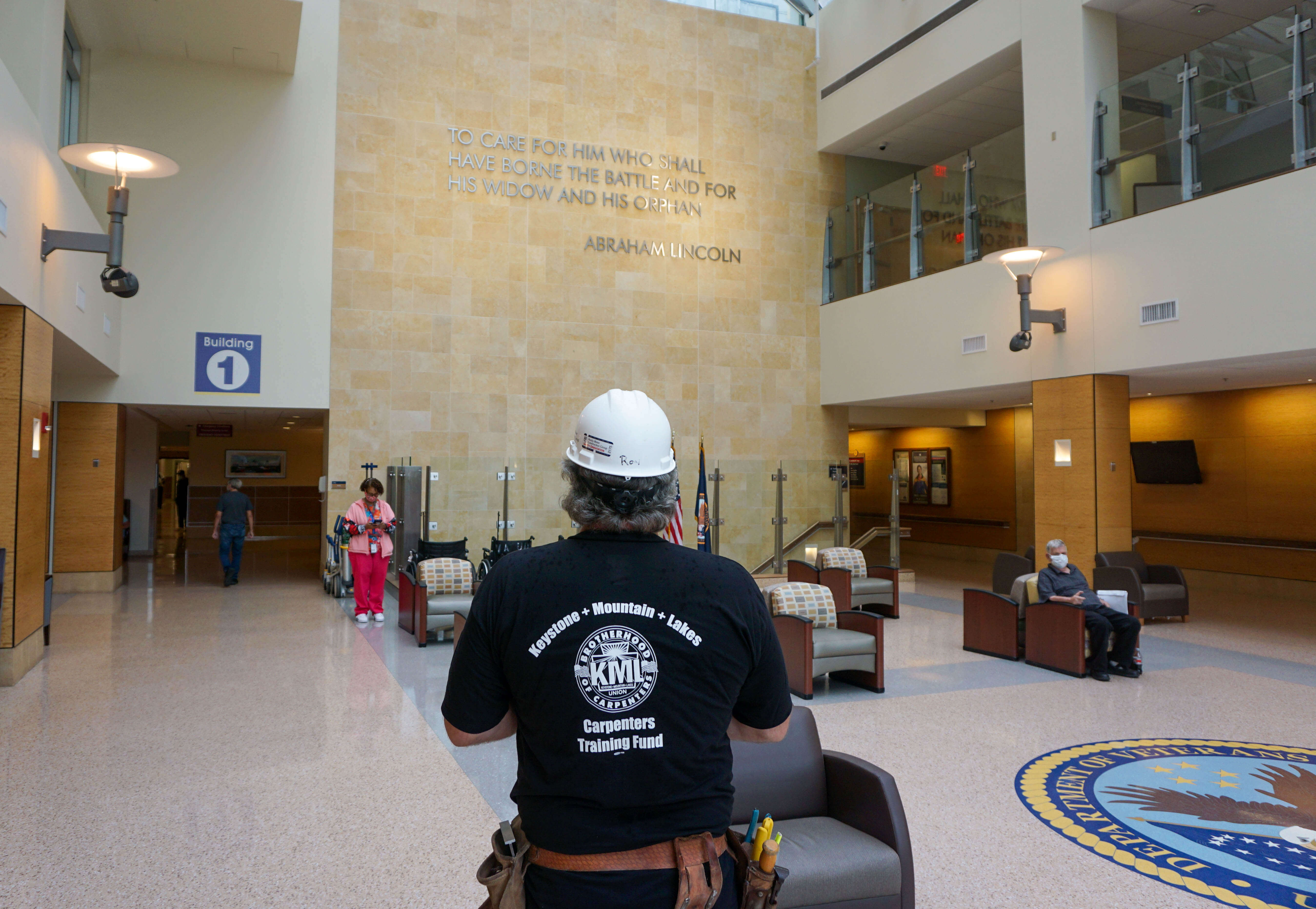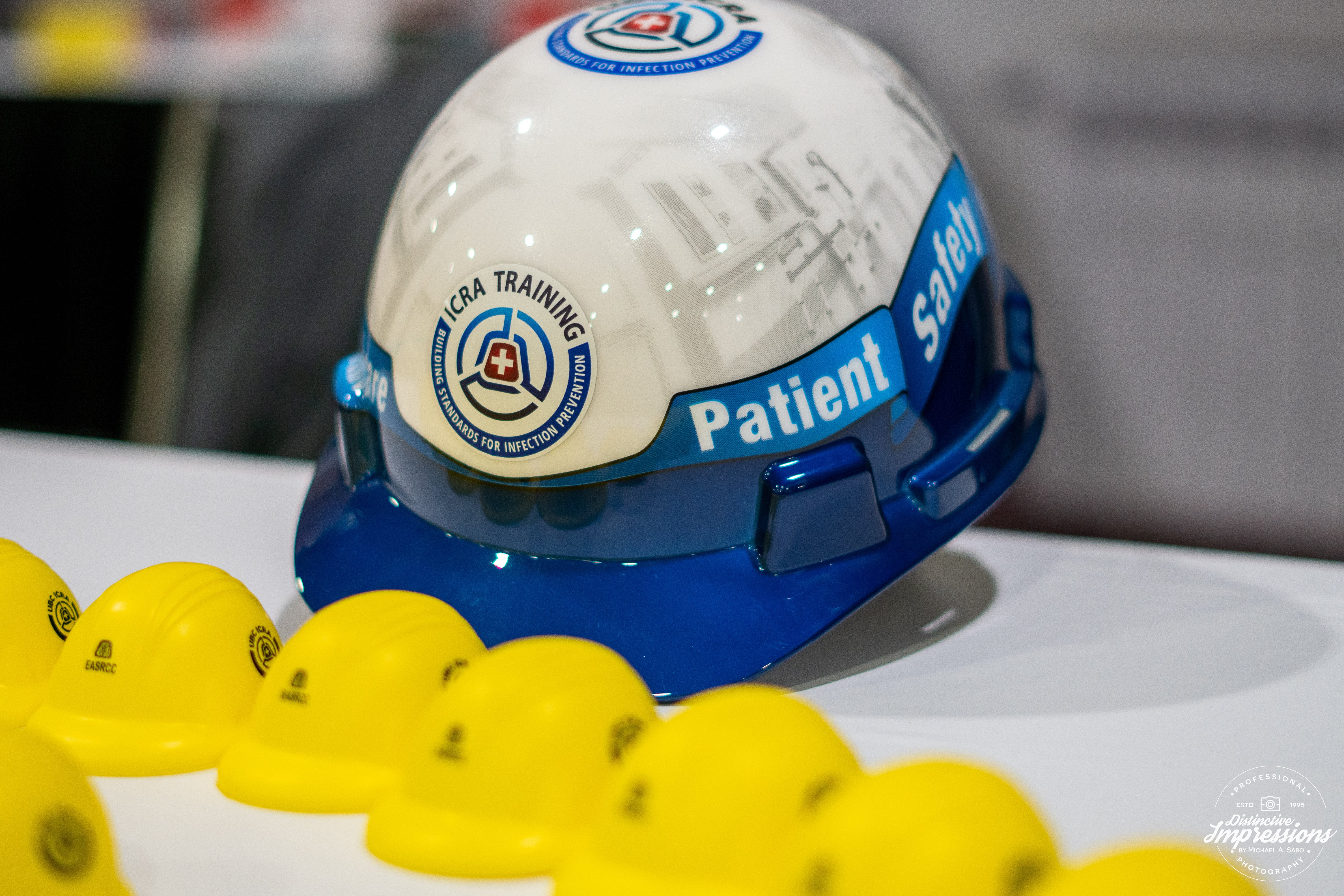
Approximately 99,000 people die in hospitals every year due to secondary infections contracted during their stays.
One of the major causes of secondary infections is cross-contamination, which can occur during hospital remodels.
The removal of ceilings, walls, flooring, etc., releases agents that may be trapped behind ceilings and walls and under floors. If not handled properly, these infectious agents are transferred through HVAC systems, drafts, feet tracking, etc., to other areas of the hospital occupied by patients with compromised immune systems who are more likely to be susceptible to secondary infections. Hospitals are looking for workers who have been trained to handle these situations during construction.
The UBC’s Infection Control Risk Assessment Program (ICRA) was developed so our members can perform construction safely in hospital environments and protect patients.
In this 24-hour program, you will learn how to:
- Contain pathogens and control airflow to protect patients and work without disrupting adjacent operations.
- Classify work areas to minimize risks.
- Understand and adhere to ICRA protocols.
- Communicate with a facility’s ICRA team.
Reach out to your training center to get certified today.

Are you already certified?
Keep your certification up to date.
If you’ve already gone through the 24-hour course, recertification is required every 4 years, with no grace period.
If you’re a healthcare professional interested in ensuring your facility’s construction site is safe for patients and staff, please contact:
Tom Bender, EASRCC ICRA Lead
tbender@eascarpenters.org

